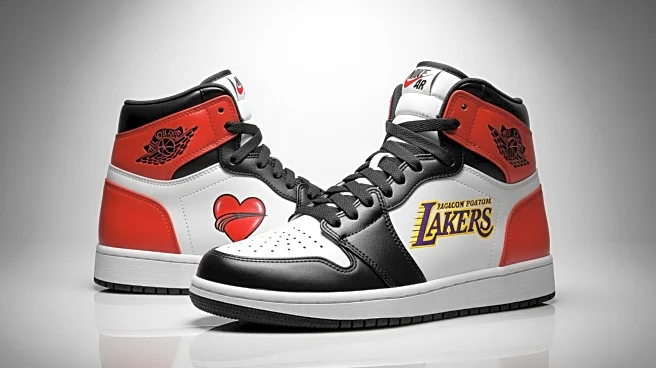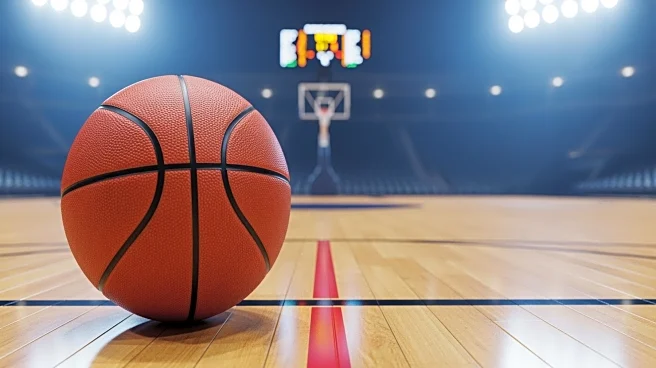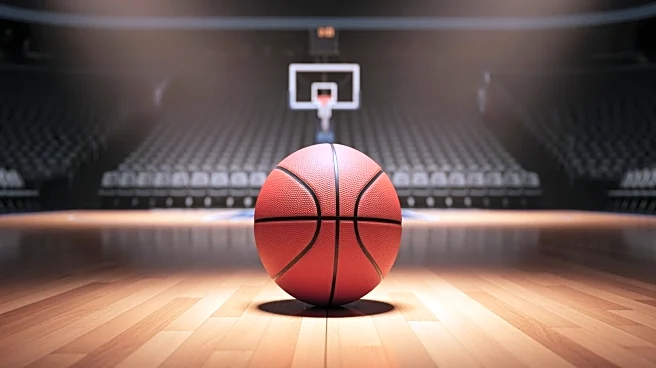What's Happening?
Jalen Brunson, a guard for the New York Knicks, has unveiled a custom pair of Nike Kobe 5 sneakers, dubbed 'What The Rick,' as a tribute to his father, Rick Brunson. The sneakers feature eight colored panels, each representing a different NBA team that
Rick Brunson played for during his nine-season career. Rick Brunson, who went undrafted in 1995, played for teams including the New York Knicks, Boston Celtics, Chicago Bulls, Toronto Raptors, Los Angeles Clippers, Seattle SuperSonics, and Houston Rockets. Jalen Brunson debuted these sneakers during the 2025 playoffs against the Detroit Pistons, symbolizing respect for his father's perseverance and work ethic. The Knicks recently secured a victory against the Memphis Grizzlies, with Jalen leading the team with 32 points and 10 assists.
Why It's Important?
The custom sneakers serve as a meaningful tribute to Rick Brunson's career, highlighting the challenges and achievements of journeyman players in the NBA. This gesture by Jalen Brunson underscores the importance of family legacy and the influence of parental figures in shaping professional athletes. It also reflects the broader cultural significance of sports memorabilia and personal tributes within the NBA. The Knicks' recent victory, led by Jalen Brunson, further emphasizes the impact of familial support and mentorship on athletic performance, contributing to the team's strong start to the season.
What's Next?
The Knicks aim to continue their winning streak, building on their current record of 7-3 and maintaining their undefeated status at home. Jalen Brunson's performance and leadership will be crucial as the team progresses through the season. The custom sneakers may inspire other athletes to create personal tributes, potentially influencing sneaker culture and sports marketing. Fans and collectors might show increased interest in acquiring such unique memorabilia, driving demand for personalized sports gear.
Beyond the Headlines
Jalen Brunson's tribute to his father through custom sneakers highlights the emotional and personal connections athletes have with their families. It raises questions about the role of legacy and personal history in professional sports, as well as the ways athletes express gratitude and respect for their predecessors. This development may encourage discussions on the significance of family influence in sports and the ways athletes honor their roots.















